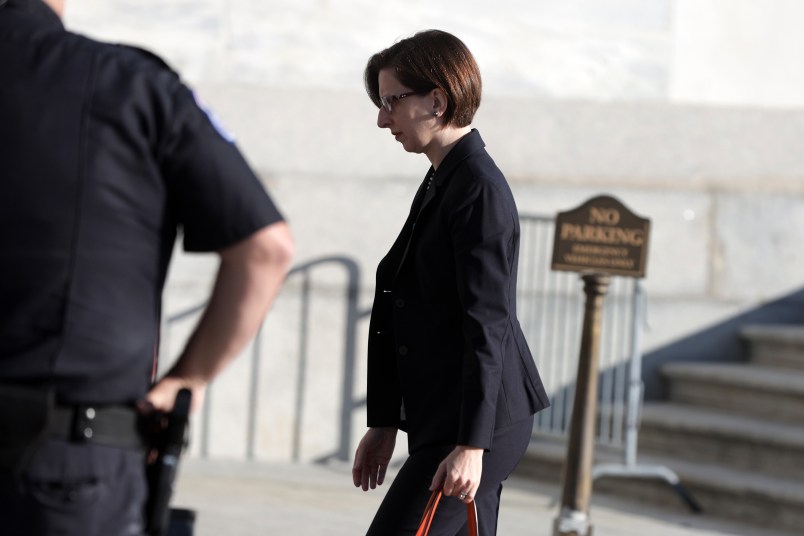Ukrainian officials inquired about the hold in hundreds of millions of dollars worth of U.S. security assistance more than a month earlier than previously known, Deputy Assistant Secretary of Defense Laura Cooper told the House impeachment inquiry Wednesday evening.
Cooper told the House Intelligence Committee that a staffer of hers received an email on July 25 from an official at the Ukrainian Embassy in Washington asking “what was going on with Ukraine assistance.”
She added that weeks later – around Aug. 6 – other staffers of hers had encounters with Ukrainian Embassy officials in which they inquired about the hold on hundreds of millions of dollars in security assistance.
“They believe the question of the hold came up at some point,” Cooper told the panel.
Later in the hearing, under questioning from Rep. John Ratcliffe (R-TX), Cooper conceded that the emails do not necessarily mean that Ukraine knew about the hold. But she said her staff thought it was likely they knew In August.
“In my experience with the Ukrainians, they typically would call about specific things and not just generally checking in on their assistance package,” Cooper said.
The revelation takes down another pillar of Trump’s defense in the impeachment inquiry. The President’s allies have argued that Ukraine only learned of the hold on security assistance on Aug. 28, when Politico published a news story revealing the delay to the public. Under that telling, there could have been no extortionate pressure campaign to announce politically useful investigations given that Kyiv would have learned about it via public, and not confidential, channels.
But Cooper’s testimony suggests that Ukraine learned of the hold within weeks of Trump ordering the delay in mid-July.
Later in the hearing, Rep. Eric Swalwell (D-CA) said that Cooper’s testimony “destroys two pillars” of Trump’s defense. The first, Swalwell argued, was the “no harm, no foul” defense – that because Ukraine didn’t know initially about the aid being withheld and eventually received the aid it obviates any damage done by its withholding. The second, Swallwell argued, was that Trump had sincere interests in Ukrainian corruption at heart in delaying the assistance.
That Ukrainian embassy officials reached out about the delay in assistance on July 25 could be significant.
Trump and Ukrainian President Volodymyr Zelensky held a telephone call on that day, in which the U.S. President asked his counterpart for a “favor” after the Ukrainian leader raised the subject of military assistance.
Cooper also testified that her office received an email on July 25 from the House Foreign Affairs Committee asking about the assistance.
Two hours later, Cooper said, her office received another email from the State Department, referring to FMF – foreign military financing for Ukraine.
“The Hill knows about the FMF situation to an extent and so does the Ukrainian embassy,” the email read, per Cooper’s testimony.






